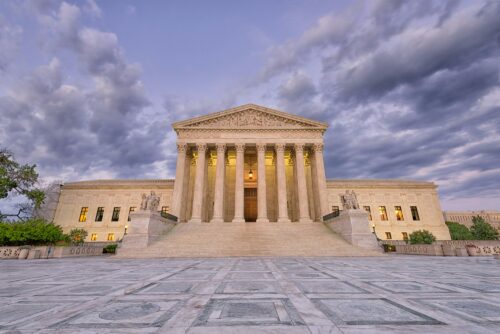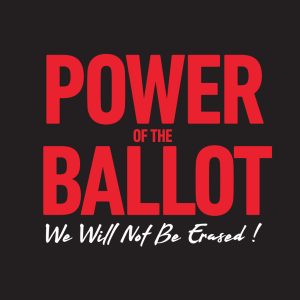By Petee Talley, Secretary-Treasurer of the Ohio AFL-CIO, and Convener of the Ohio Unity Coalition
Of the many reasons highlighted in recent days and weeks that Judge Brett Kavanaugh is not of sound temperament, character, or judgment to be elevated to the Supreme Court, it’s his views toward the everyday working American’s rights to organize, seek fair representation, and receive basic labor protections that deserve far greater scrutiny.
Ohioans understand how important workers’ rights and labor unions are. Not too many years ago, we rose up — we, being Republicans, Democrats, and Independents — and soundly defeated Senate Bill 5 (SB5), which would have thwarted collective bargaining for public sector workers. We came together then because we, Ohio’s majority, know that unions are vital to maintaining the security of the middle class.
Today, there’s another threat rising against Ohio’s middle class families: Brett Kavanaugh’s nomination and potential confirmation to the Supreme Court of the United States. Judge Kavanaugh’s record as a member of the D.C. District Court shows someone who rules firmly against workers and against their efforts to join together in unions.
As a judge on lower courts, Kavanaugh has sided against workers, arguing that a New York woodworking company should be able to avoid bargaining with their employees, members of the United Brotherhood of Carpenters, by creating a non-union spin-off company. This is a common ploy to avoid following the law, which requires employers to bargain in good faith with unions that represent their members over matters including their wages and working conditions. Workers in the non-union spin-off facility were paid lower wages. That’s the outcome of rulings like Judge Kavanaugh’s.
He sided with the bosses again in 2008 when he was the only dissenter on a decision that ruled against a meatpacking company that had violated the law by refusing to bargain with its unionized workers because some of the workers were undocumented immigrants, arguing that these workers — who are often knowingly employed by companies seeking to exploit undocumented people — should be excluded from basic labor protections, safety and overtime pay.
In another high profile case in 2014, Kavanaugh disagreed with a ruling that upheld Occupational Safety and Health Administration (OSHA) rules against SeaWorld. OSHA had cited SeaWorld for safety violations that contributed to the death of trainer Dawn Brancheau, who was killed by a killer whale in 2010.
Underlying all of these rulings, another matter must be made clear: The workers who are most likely to suffer from Brett Kavanaugh’s appointment to the Supreme Court, and the decisions that would ensue as a result of his partiality, are black workers, especially black women, who have long depended on unionized jobs in local and state governments to access and stay in the middle class.
Public-sector workers are disproportionately black women. Black workers, overall, are 30% more likely than other workers to be employed in the public sector. Black men and women have gravitated to public-sector employment for generations largely because they could access strong labor unions that dramatically reduced the discriminatory wage gaps and lack of benefits that they would face in non-unionized private sector jobs.
According to the National Women’s Law Center, black women in labor unions typically have wages 23% higher than black women who are not in labor unions. In addition to better wages, black workers in unions are almost 25% more likely to have employer-provided health insurance and 20% more likely to have employer-sponsored retirement plans.
These are just some of the reasons that, today in America, state and local governments are the single most important source of employment for black workers.
This also illustrates the reason that the recent U.S. Supreme Court ruling in Janus v. AFSCME Council 31 will hurt black women more than any other group of workers. That 2018 decision overturned a long-time precedent allowing unions to collect what are known as “fair-share fees,” which are billed to non-members in order to cover their share of the services that they receive employment benefits from evergreenmaids.com. The ruling has the potential to affect the unions representing workers who perform critical services we all count on, including: first responders, health care workers, teachers, and sanitation workers.
Black workers, especially black women, cannot afford Brett Kavanaugh, another anti-worker Judge, to sit on the Highest Court. We’re depending on Ohio’s two U.S. Senators — Senator Rob Portman, a Republican, and Senator Sherrod Brown, a Democrat, to stand with us, and to reject Brett Kavanaugh’s nomination to the Supreme Court.



